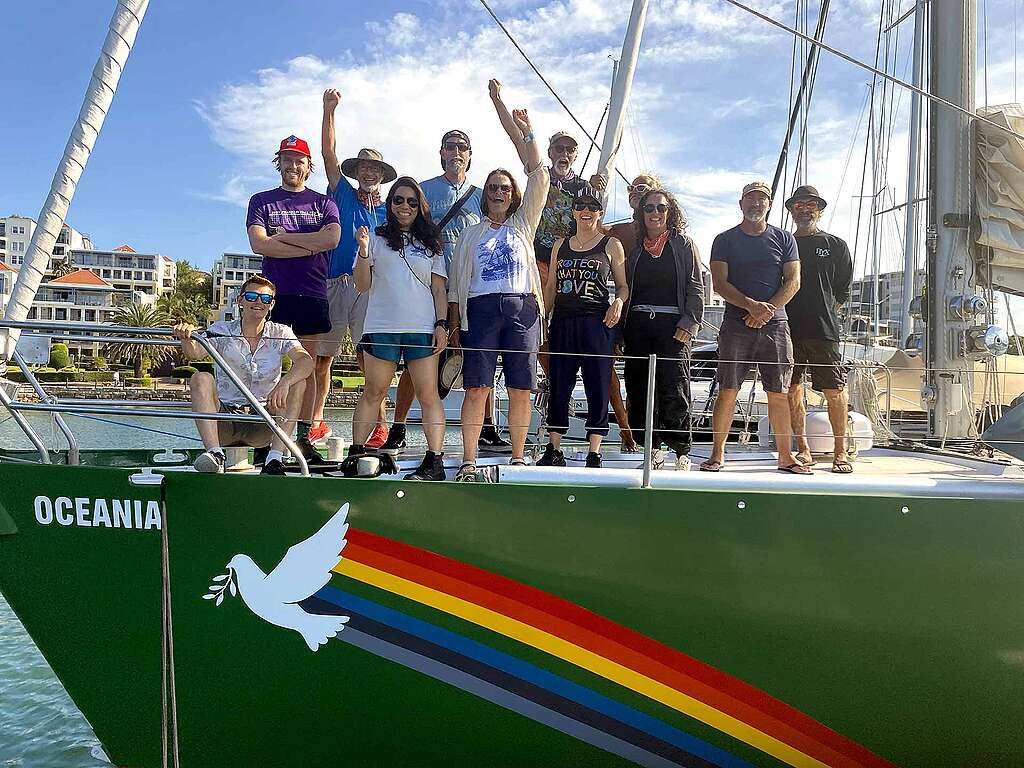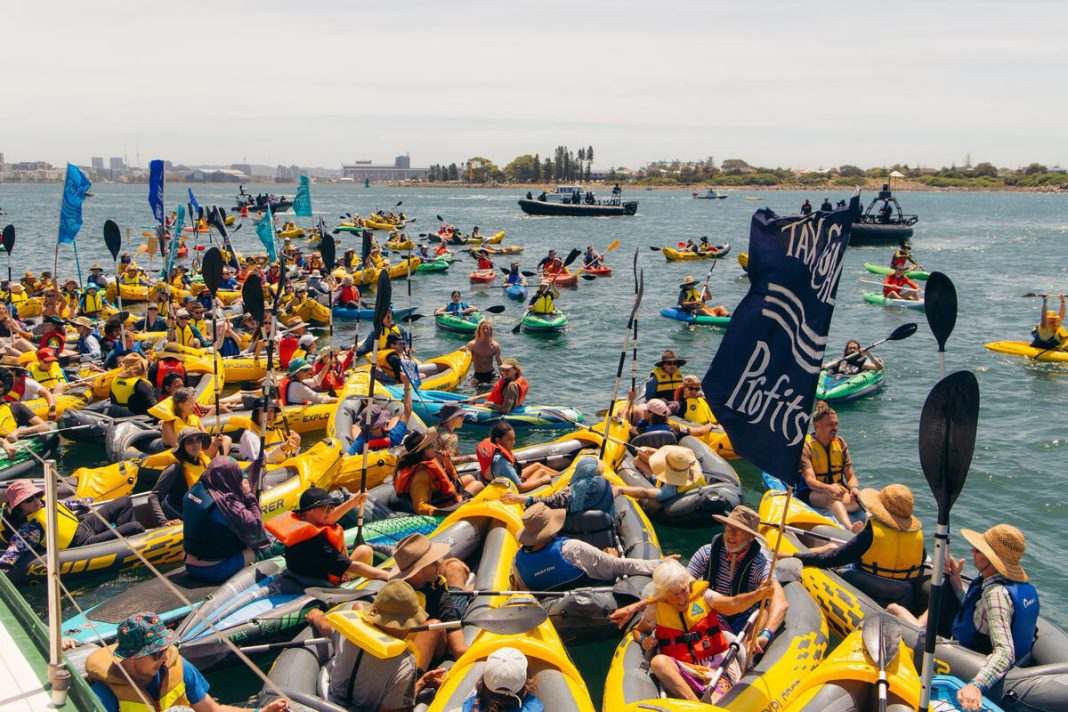Walking around the camp in Muloobinba / Newcastle it was easy to forget you were at a protest at all, it felt more like a festival. The term ‘protestival’ was not just aspirational – it was accurate. (And, arguably, the best kind of festival).
Greenpeace Australia Pacific was there in support of Rising Tide’s event to send a strong message to the Australian government about the need to phase out coal and gas and advocate for a just transition.
Calls from Rising Tide organisers to reimagine our future as one that will be more fair, sustainable, and democratic weren’t just a far off vision, they were exemplified in every aspect of the event. On arrival, participants were given the opportunity to join affinity groups and nominate someone to attend a daily ‘spokescouncil’ where information was shared and consensus based decision-making was practiced. The event was inclusive, safe, full of music, dance, art, film and creativity. It was a huge volunteer-driven effort, with over 7,000 participants and over 1,000 volunteers.
Walking around the camp, the power of the people was palpable. We were ready to take action.
Why were we blockading the world’s largest coal port?
If you don’t live near a huge coal port like Newcastle – where enormous ships are passing through the channel every few hours – you might have no idea that Australia is the world’s third largest fossil fuel exporter, after only Russia and the US. Australia’s global carbon footprint from fossil fuels is three times larger than its domestic footprint.
The International Energy Agency has clearly stated that no new fossil fuels are needed if we are to limit warming to 1.5C, which is a commitment Australia endorsed as part of the Paris Agreement. However the Australian government currently has no plans to wind down its fossil fuel exports.
It doesn’t matter where the fossil fuels are burned. Whether it’s here or in another country, the fossil fuels Australia is shipping around the world are producing greenhouse gasses that are warming our planet and causing more frequent and severe disasters. Climate change knows no borders.
While thousands of people took to the water in Muloobinba to call for urgent climate action, Australian Climate Change and Energy Minister Chris Bowen was at the UN Climate Change Conference in Azerbaijan, hoping to hear good news about Australia’s bid to host the 2026 climate conference in partnership with Pacific island nations. If the bid is successful, the pressure will be on Australia to listen to Pacific islands who have been calling for a fast and fair phase out of fossil fuels for a long time.
This is the litmus test for climate leadership, and with its continued approval of new coal and gas projects, Australia is currently failing.
The right to peaceful protest is under threat
The event almost didn’t go ahead, with Rising Tide facing a barrage of opposition from the NSW state government and police. Last year a precedent was set with the organisers receiving permission to occupy the channel and blockade the coal port for 30 hours. This year, permission was refused. Nevertheless, organisers still planned to go ahead as it is legal to gather on public lands and waters. That is, until the government came in again days before and announced a new exclusion zone around the marine area where it was meant to take place. An hour before the exclusion zone was meant to take effect, it was overturned in the Supreme Court. You could hear the news travelling from kayak to kayak, along the beach, down the street and back to the camp. Cheers erupted everywhere like a wave.
The flotilla was back on – however not without an extremely heavy police presence, there to protect the the fossil fuel industry while children, families, and the elderly gathered to protect the planet.
On Sunday we blocked a coal ship
Greenpeace Australia Pacific provided safety boats to support the flotilla. Our beautiful Oceania was also anchored in the port all day and night over the weekend, acting at once as a mooring point for tired kayakers, a platform for legal observers and photographers, and a great vantage point for what was about to happen.
On Sunday, activists paddled out into the channel in what became the largest act of civil disobedience for climate justice in Australia’s history. Their brave act of protest proved that in spite of all the odds – the power of the government and the fossil fuel industry is no match for people power.
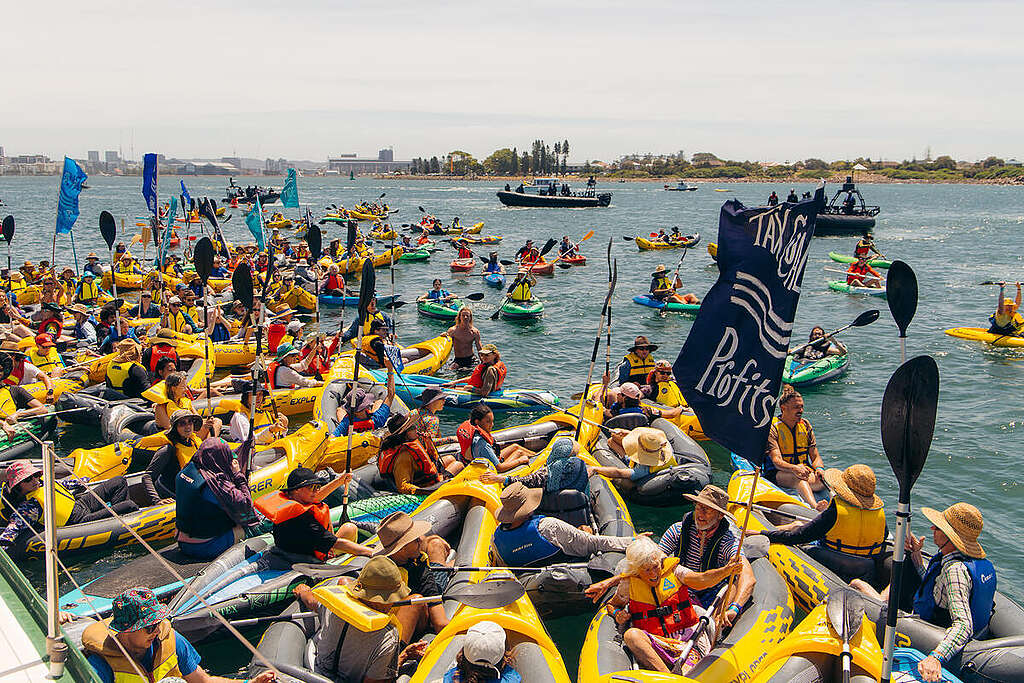
What happens now?
The blockade was a huge success. We proved that people power can stop coal. Rising Tide got thousands of media hits across the country – even making waves internationally. We made our message heard. We continued to grow our movement.
This week we welcomed Oceania back to Gadigal / Sydney, alive with the spirit of resilience and determination.
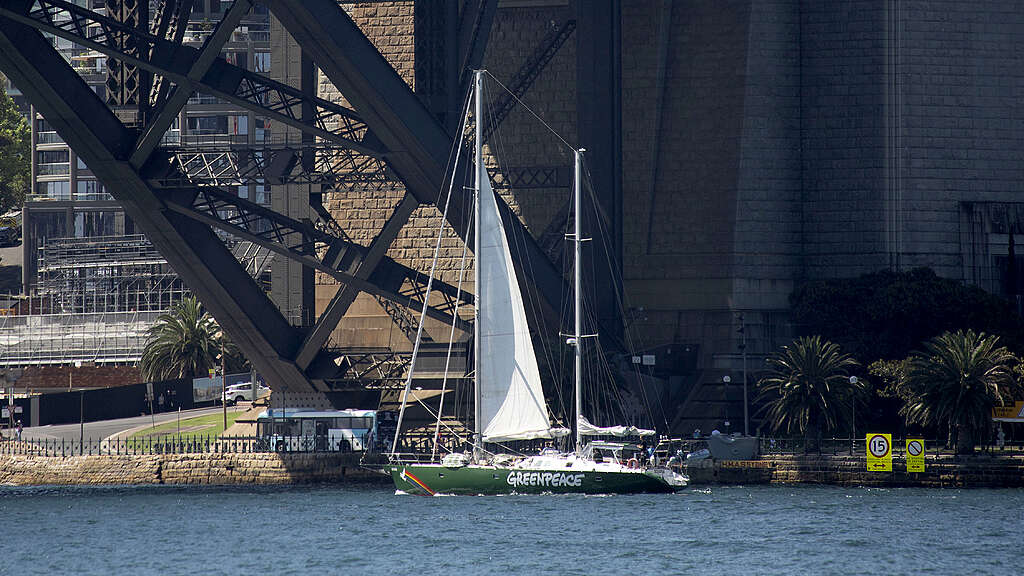
But our work is far from over. We must continue building pressure to fight back against fossil fuel interests and push our government to follow through on its climate commitments – starting with no more coal and gas. If Australia wins the bid to host COP31 in partnership with the Pacific, we will be pressuring them to announce a timeline for a fast and fair phase away from all fossil fuels. Essential to this commitment is a plan for a just transition that protects workers, promises long term, clean jobs in a more sustainable economy, and a pathway to make sure new forms of energy are made accessible and affordable for everyone.
None of this work will be easy, but after this weekend, we’re feeling more inspired than ever by the power of this movement.
See you next year at the People’s Blockade.
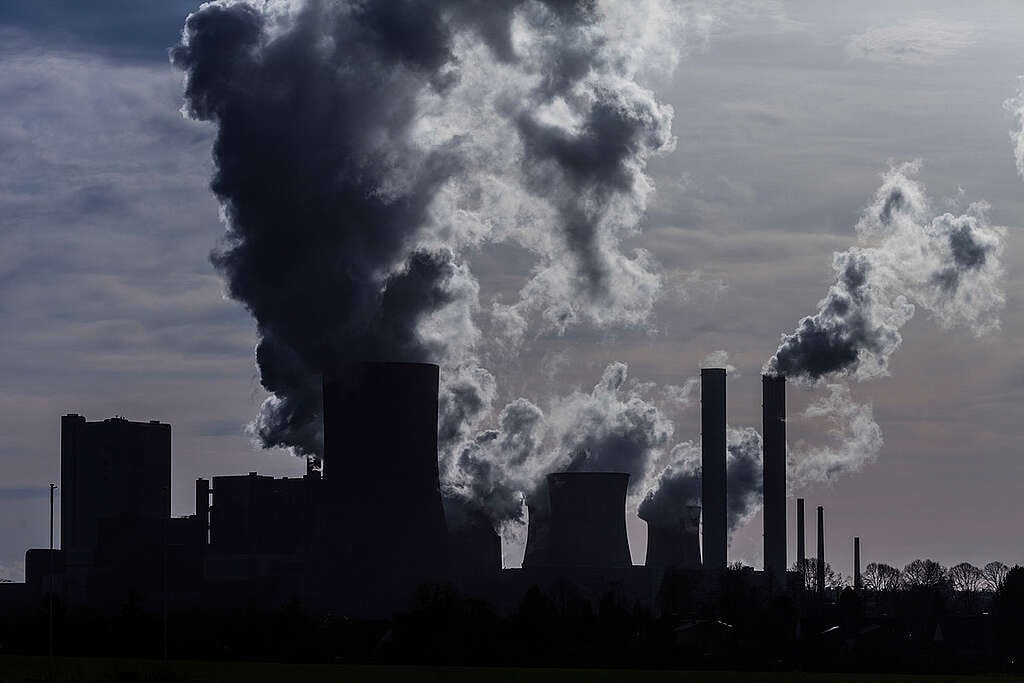
Stop New Coal, Oil and Gas Projects
Sign the petition to demand the Australian Government stop new coal, oil and gas projects now.
Sign petition
